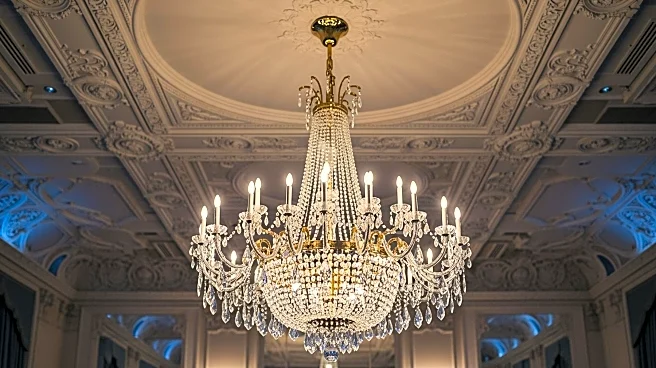What's Happening?
The White House has announced that the construction of a new ballroom, estimated to cost over $300 million, will be funded entirely by private donors. This follows the demolition of the historic East Wing.
The list of 37 donors includes major tech companies, businesses with government contracts, and members of the Trump administration. Notable contributors include Meta Platforms, Apple, Amazon, and Lockheed Martin. The donations are being made to the nonprofit Trust for the National Mall, ensuring that taxpayer money is not used for the project. President Trump has stated that he will also contribute, although his name is not on the donor list.
Why It's Important?
The funding of the White House ballroom project through private donations rather than taxpayer money is significant as it reflects a growing trend of public-private partnerships in government projects. This approach can alleviate the financial burden on taxpayers while allowing private entities to contribute to national projects. However, it also raises questions about the influence of corporate donors on government decisions and the potential for conflicts of interest, especially when donors have existing government contracts. The involvement of major tech companies and defense contractors highlights the intersection of business interests and government initiatives.
What's Next?
As the project progresses, there may be increased scrutiny on the donors and their potential influence on government policies. The transparency of the donation process and the selection of contractors for the construction will likely be areas of focus for watchdog groups and the media. Additionally, the completion of the ballroom could set a precedent for future government projects being funded through similar means, prompting discussions on the ethical implications of such funding models.










